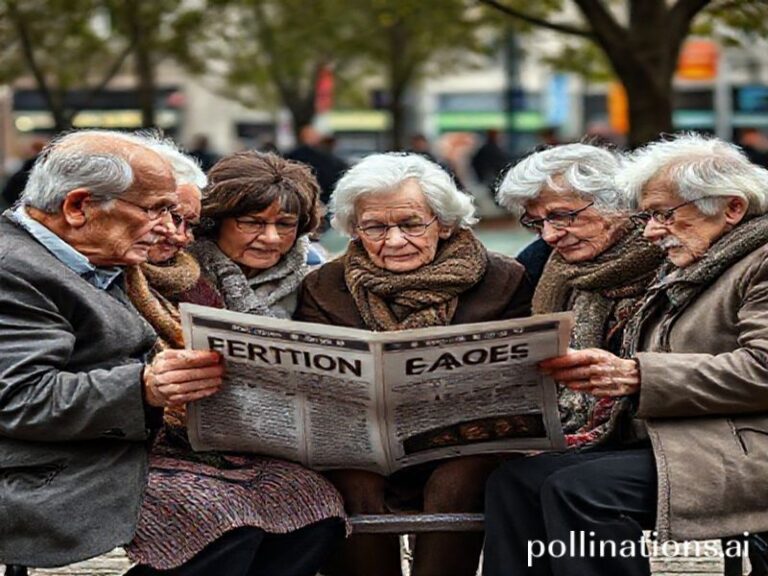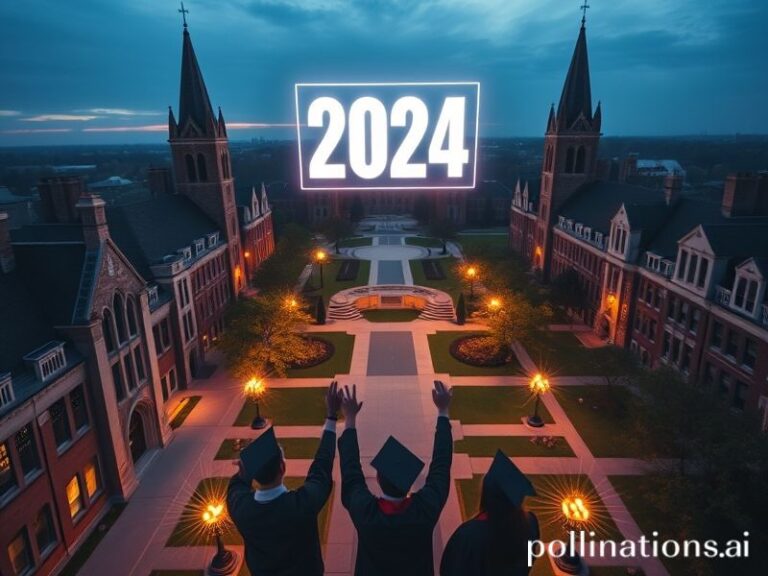Noah Kahan: How a Vermont Sad-Boy Anthem Conquered the Planet’s Playlist
Noah Kahan and the Global Business of Feeling Homesick
By Dave’s Locker Foreign Desk
Somewhere between the maple syrup aisle of a Berlin supermarket and a Spotify playlist titled “Sad Hiking,” a 27-year-old from Strafford, Vermont (population: 1,089, two general stores, and an existential dread per household) has become the unofficial troubadour of planetary weltschmerz. Noah Kahan—folk-pop’s answer to seasonal depression—now sells out arenas from Sydney to Stockholm, proving that the lingua franca of the 2020s is not English or Mandarin but the universal sigh of “I should call my mom.”
His breakout hit, “Stick Season,” is essentially a weather report for the soul, and it has charted in 22 countries, including markets that have never seen a deciduous tree in their collective lives. In Singapore, teenagers who think “fall” is just a cryptocurrency term stream the track while studying for exams that will decide their economic fate. In São Paulo, commuters stuck in 12-lane traffic hum the chorus like a Buddhist mantra for gridlock. The song’s genius lies not in its banjo hook but in its ability to export raw New England malaise to places that already have their own perfectly serviceable despair.
Kahan’s global reach is, of course, algorithmic destiny wearing flannel. TikTok’s recommendation engine, a digital narcotics courier, pushes his quivering tenor into every corner where young people scroll between climate-anxiety doomswipes. The result is a new kind of soft-power diplomacy: instead of dropping bombs, America drops confessional folk songs about emotionally unavailable fathers, and the rest of the world hits “like.” The State Department, ever alert to branding opportunities, has reportedly floated the idea of a Kahan tour through NATO’s eastern flank—nothing reassures jittery Baltic teens like a man whispering “I love Vermont, but it’s the season of the sticks” over an acoustic guitar.
Critics in Paris—where angst is traditionally delivered with Gauloise smoke and adultery—dismiss Kahan as “whiskey for people who drink oat milk.” Yet even the French can’t deny the numbers: streams in the Île-de-France region spiked 340 percent after a viral video of a crying beret-clad influencer. Capitalism, ever shameless, has responded. Urban Outfitters in Tokyo now sells distressed “Stick Season” hoodies for ¥9,800, manufactured in Bangladesh and pre-faded to look like you’ve survived at least one Vermont winter and/or emotional breakdown.
Meanwhile, geopolitics shadows the tour itinerary. When Kahan announced a Moscow date for 2025, Ukrainian fans flooded social media with maple-leaf memes and gentle reminders that folk music doesn’t play well over the sound of artillery. The show was quietly moved to Tbilisi, where ticket sales doubled overnight—nothing sells nostalgia for home like the possibility you might not have one.
Back in Washington, think-tank analysts—who measure global sentiment in retweets and micro-doses of serotonin—cite the “Kahan Effect” as proof that Gen Z prefers emotional transparency to traditional propaganda. Imagine: instead of Voice of America broadcasts, future psy-ops will consist of whispered apologies over finger-picked chords. The Pentagon’s next black-budget line item: a sad banjo.
Even the climate crisis has adopted him as unofficial soundtrack. Glaciologists in Greenland reportedly blast “Northern Attitude” while watching ice shelves calve; the irony is not lost on them that a song about feeling frozen is now background music for literal melting. Kahan, when asked, shrugged and said he just writes what he knows. What he knows, it turns out, is how to monetize the precise frequency at which glaciers and hearts both crack.
So the world spins on, armed with noise-canceling headphones and a collective ache for somewhere greener, real or imagined. Noah Kahan strums, the planet nods along, and the algorithms tally another million streams. Somewhere in Vermont, a single yellow leaf falls, and the global economy shivers in recognition. We are all homesick for a place that may never have existed—conveniently available in Hi-Res Lossless for $10.99 a month.







